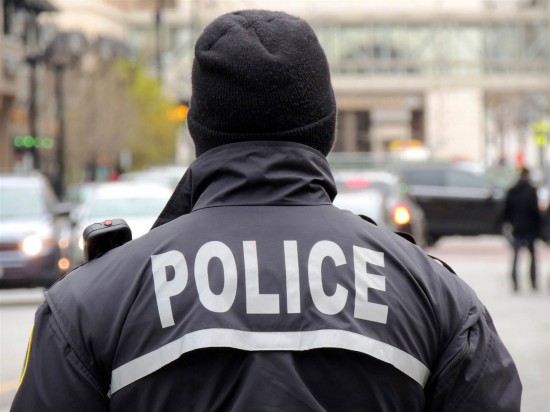Survey Shows: Balkan Citizens Still Trust “Corrupt” Police
A new survey published on Thursday by a regional network of NGOs, Pointpulse and the Belgrade Center for Security Policy, shows that well over half of all surveyed citizens in the Western Balkans – 58 per cent – trust their police forces despite viewing them as corrupt.
“Although more than half of citizens have trust in the police, most of them perceive them as corrupt – 58 per cent,” the survey says.
The survey was conducted in Albania, Bosnia, Montenegro, Macedonia, Serbia, and Kosovo during June and July among 6,000 adults.
The authors say the popular belief that the police are both corrupt and trustworthy at the same time suggests people have accepted that corruption is widely present in the police, and have become accustomed to it as an inevitable.
“Border, traffic and criminal police, as well as the close associates of interior ministers, are singled out as the most corrupt sections of the police, while special units, employees in administrative affairs and employees in matters of public order protection are the least vulnerable to corruption,” the survey says.
Citizens of Kosovo have most trust in their police force – 69 per cent. This is followed by Montenegro, where 65 per cent trust the police, and by Albania, where the level of trust is 60 per cent. In Serbia, the figure is 56 per cent and in Macedonia, 54 per cent. Bosnians have least trust in their police – only 47 per cent.
The Western Balkans Pulse for Police Integrity and Trust, Pointpulse, is a regional network of NGOs from Serbia, Bosnia, Montenegro and Kosovo, in which BIRN Serbia also participates. It was formed in 2014 to look at the police’s integrity in the Western Balkans.
The latest survey showed that 65 per cent of the citizens in the Western Balkans believe politicians exert a large or dominant influence over the work of the police.
“According to citizens, the most effective method for preventing corruption is the stricter punishment of the perpetrators, especially the managers in the police. The government, the interior ministers and the internal control of the police are the most responsible for preventing corruption,” it adds.
Pointpulse underlined that police from different countries can learn from each other.
One of the survey’s recommendations is for police services in the region to communicate more effectively with their citizens in order to build trust.
“This is especially important when it comes to younger generations who have much more negative stances towards institutions than older fellow citizens,” Pointpulse pointed out. It noted that people aged 18 to 29 have least trust in the police.
The survey also underlined that people see the key to solving the problem of corruption, unprofessional behaviour and favouritism in the work of the police as lying in the hands of national political elites.
“The respondents believe governments are the most responsible for combating corruption [20 per cent], then comes internal police control [16 per cent], the Interior Minister [14 per cent] and the Anti-Corruption Agency [11 per cent],” it concluded.
15 September 2017
Disclaimer: All views, opinions and accounts included in the RAI News Section are those of the authors; their inclusion does not imply official endorsement or acceptance by RAI. The News Section reflects the selection of topics of informative value to the organization and its stakeholders. Its content is taken from press/media sources and does not in any way reflect official RAI Secretariat policy. RAI Secretariat is not responsible for possible inaccuracies in media reports.

